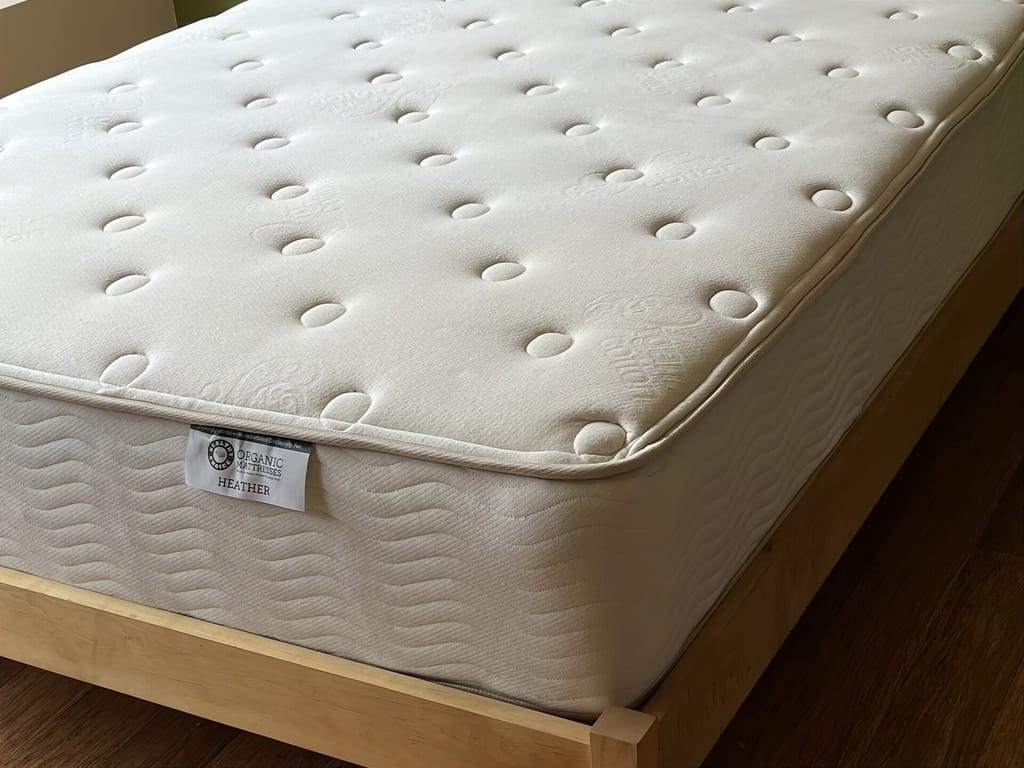How to relieve lower back pain while sleeping
Lower back pain can be a debilitating condition and can make it difficult to sleep comfortably, but there are steps you can take to mitigate and even relieve your lower back pain while you’re sleeping. With a few adjustments, you can make sure you get a good night’s rest without the discomfort associated with this condition.
Choose the right mattress
Sleeping on the wrong mattress can cause or worsen your lower back pain. Finding the right mattress for your individual needs is essential to improve your sleep quality.
When shopping for a mattress, consider your body type, sleeping habits, and budget. If you are a side sleeper, opt for a medium-firm mattress that provides cushioning for your shoulders and hips while supporting your spine.
Stomach sleepers should look for a firmer mattress to keep their hips from sinking in, while back sleepers should look for a mattress that is softer to provide cushioning at the lower back and hips. Besides mattress firmness, look for mattresses that provide targeted support to the lower back.
Many mattresses on the market have layers of memory foam or latex designed to contour to the body and provide support where it is needed most. When testing mattresses, lie on the mattress for at least 15 minutes in your normal sleeping position. Pay attention to the areas where you feel pressure and decide if the mattress you are laying on provides adequate support for your body. If you feel pain or pressure in your lower back, the mattress may be too firm or too soft.
Consider your budget before shopping for a new mattress. Mattress prices range from a few hundred dollars to thousands of dollars, so aim for one that fits within your budget. Finding the right mattress can make all the difference in relieving lower back pain.

Simple Exercises
If you suffer from lower back pain while sleeping, it is important to address the underlying cause of your discomfort. Strengthening your core muscles can help ease the strain on your lower back, allowing you to sleep more comfortably. Here are some simple exercises that can help:
Bridge: Start by lying on your back with your feet flat on the floor and your knees bent. Tighten your core muscles, then lift your hips off the floor. Hold for 10 seconds, then lower your hips back to the floor. Repeat 10 times.
Plank: Start by getting into a push-up position with your weight distributed between your hands and feet. Tighten your core muscles, then hold the position for 30 seconds. Repeat 3 times.
Glute Bridges: Start by lying on your back with your feet flat on the floor and your knees bent. Tighten your core muscles, then squeeze your glutes and lift your hips off the floor. Hold for 10 seconds, then lower your hips back to the floor. Repeat 10 times.
Supermans: Start by lying on your stomach with your arms extended in front of you. Tighten your core muscles, then lift your arms, legs, and chest off the floor. Hold for 10 seconds, then lower your arms, legs, and chest back to the floor. Repeat 10 times.
By performing these exercises, you will strengthen your core muscles and reduce the strain on your lower back.
Proper Sleep Posture
A proper sleep posture is essential for reducing lower back pain during sleep. Here are some tips:
- Sleep on your side. When sleeping on your side, make sure that your head and spine are in a straight line. Place a pillow between your legs and use one to support your head.
- Use a supportive mattress. A mattress that is too soft can cause your spine to be misaligned, leading to back pain.
- Avoid sleeping on your stomach. Sleeping on your stomach can cause your spine to be misaligned and can cause lower back pain.
- Make sure your bed is at the right height. If your bed is too high or too low, it can cause your spine to be misaligned and can lead to back pain.
- Use a pillow for support. Placing a pillow under your knees can help to reduce pressure on your lower back.
- Stretch before going to bed. Stretching can help to loosen up your muscles and can help to reduce lower back pain.
Consult your doctor if you have questions.

Conclusion
To relieve lower back pain while sleeping, it is important to remember to keep the spine in a neutral position. Try some tips mentioned in this article: taking these measures will help to keep your spine aligned, reduce lower back pain and improve your sleep quality.
Reference
- Doctor, P., & Doctor, P. (n.d.). How To Get Rid Of Lower Back Pain While Sleeping – 12 Tips – Pain Doctor. https://paindoctor.com/how-to-get-rid-of-lower-back-pain-while-sleeping/
- Marcin, A. (2020, August 25). The Best Sleeping Positions for Lower Back Pain, Alignment Tips, and More. Healthline. https://www.healthline.com/health/healthy-sleep/best-sleeping-position-for-lower-back-pain
- Suni, E. (2023, February 3). How to Sleep With Lower Back Pain. Sleep Foundation. https://www.sleepfoundation.org/physical-health/how-to-sleep-with-lower-back-pain